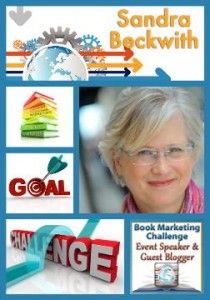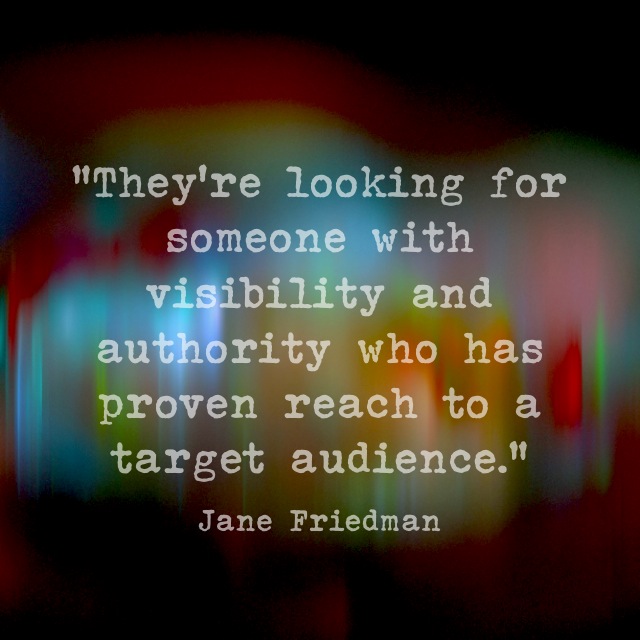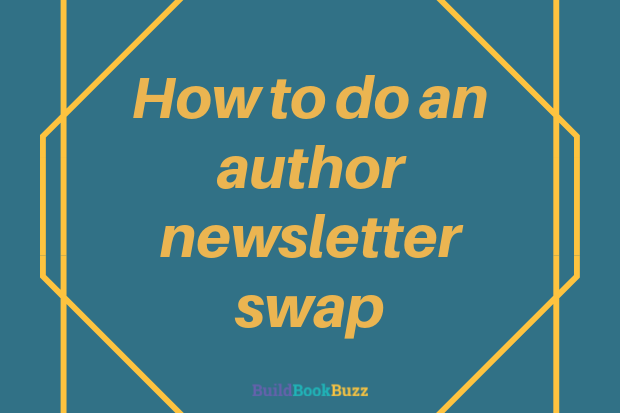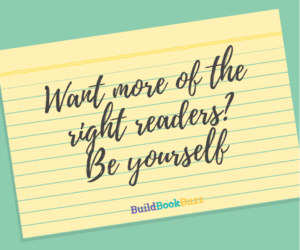4 book marketing success tips
I’m presenting today in the 30-day Book Marketing Challenge on “Book Marketing Dos and Don’ts,” sharing some of what I’ve learned over the years as a publicist and book marketing instructor and coach.
As I prepared for the recorded session, I spent a lot of time thinking about what I hear from authors on a regular basis — whether it’s in conference conversations, personal e-mails, or online group discussions. I also paid attention to what I’ve been observing in the marketplace — what others are doing and where it is (or isn’t) taking them.
Today’s post takes my online presentation a step farther, sharing patterns, actions, and trends I’m seeing that could make the difference between success and failure for authors. It plays off common mistakes and plays up productive behaviors.
Will any of these tips help you look at what you’re doing differently and lead you in the right direction?
1. Become a student of book writing, publishing, and marketing.
You will succeed a lot faster if you write a great book. But a great manuscript will get lost if the packaging is amateurish or the interior layout doesn’t present the information properly. On top of that, if you don’t know much about book marketing, promotion, and publicity, your book won’t be discovered by those you wrote it for.
To become a better writer, take a course or two at a local college. To learn more about publishing and book marketing, take an online course from someone with a good reputation.
One of my Book Marketing 101 students landed this plum placement in the May issue of Health magazine. Did it happen by chance? No. It happened because she learned how to write a great book, researched her publishing options so that the end result was as good as it could be, and studied book marketing.
2. Put in the time outside of writing.
I know, I know. You just want to write. Same here. But successful authors spend a lot of time perfecting their craft, finding the right publishing partnership, and doing everything it takes to make sure their books get discovered. They’re also spending time learning which marketing tactics work for their books, and which ones don’t. Sometimes that can be taught; other times, it’s trial and error on your part.
All of it takes time. There’s no shortcut unless you can afford to outsource some of it — and even then, it takes time to find, instruct, and supervise the team you assemble.
3. Stop rushing.
What’s your hurry? I remember working with a self-publishing memoirist who had a fascinating story to share, but a title that offered absolutely no insight into what her book was about. When I asked her to help me make the connection between the title and the content, she couldn’t, saying instead, “I don’t really like it, but I’ve got a cover with that title already and I want to get the book published as soon as possible. I don’t want to slow down the process by changing the title.”
What’s more important here? Hitting an arbitrary deadline or making sure one of the most important components is as good as it can be?
This attitude isn’t unusual. When I ask a question about something related to a work-in-progress, the answer is often, “I don’t have time to deal with that flaw. I’ve got to get the book out.” That flaw could be fatal. Do you want to take that chance?
If you have the skills to write and publish a quality book quickly and doing that helps you meet specific goals, then go for it. But if you’re blowing past key steps in the process for the sake of speed alone, then think about slowing down. You will probably produce a much better book.
4. Plan. Then plan. And plan some more.
You want to plan for success. That takes time, knowledge, and effort. In most cases, those “overnight successes” have spent years — often decades — planning for that big break. They’ve learned what was required, then used what they learned. They’ve known it would be a slow process loaded with detours and speed bumps, but they had a plan and a goal and kept at it.
You can do that, too.
What’s your best book marketing success tip?

Subscribe to the free Build Book Buzz newsletter and get the free special report, “Top 5 Free Book Promotion Resources,” immediately!







My best marketing tip once the book is done: Go out to the Markets and sell your book.
You will see who is excited about it and who purchases it, and as a result you will have a clear representation of your target audience. If someone at a market tells you your price is too high, and you know it is not because it compares to other books of your kind, you know that you should not attend that Market in the future but one where consumers have higher incomes.
It is absolutely essential you discover who your exact target audience is, because you need to market to them.
Everyone may love your book. However, the questions you should be asking are: who has the need for my book and who has the money to buy it? Books, particularly fiction books, are WANTS not NEEDS.
How do you transform a “want” into a “need”?
If you figure it out, let me know. I did not get there, yet. 🙂
Great points, Mili. Thanks. I especially like your point about fiction being a “need” and not a “want.” And…while we all like to think that “everybody” will enjoy our book, in reality, that’s not true. You need to identify those “nonfiction nuggets” in your fiction to uncover the niche audiences who will relate to what you share.
Sandy
I like the “rushing” point. I, myself, have done this, because I am afraid something will happen to my manuscript. My computer is not the best and there have been times when the hard drive crashes (I’ve had 2 so far) and my computer will not start up. I save my books to disk, but I am still paranoid. Another reason I do this is because I get tired of reading my novels over and over after editing – I do it, but I get tired of the story myself and I just want it done. I hate to be like this and I press myself to keep reading and editing. I’m happy when I’ve taken the time, but it is a struggle.
Kelli, it sounds like you’re rushing to finish before a computer crash, while I’m referring more to rushing to finish an arbitrary deadline that can be extended. I can’t argue with your reason! (And I’d probably do the same.)
I also get very tired of reading my own work. Plus, it’s not like an article that you can read and edit a few days later. A book is…well, a BOOK! It takes so much time to re-read and edit. At some point, as you know, you need to stop and at least release it to beta or test readers for objective and constructive feedback. Do you do that?
Thanks for stopping by!
Sandy
Back up to a service like Drop Box. It gives incredible peace of mind.
Yes, I have my work professionally edited and normally it takes three rounds to make sure everything is okay. I have people I know who will read parts of it also.
You have everything covered, then, except that stupid crashing computer.
; – )
Sandy
Find your target audience and do the vast majority of your marketing to THEM. So many authors spend a lot of time marketing to each other (“You promote my book and I’ll promote yours.”) But often, our markets are very different. All that does is annoy readers.
Thanks, Joan. I completely agree. One author I worked with complained that her virtual book tour didn’t sell books. I suspected that she was a guest on the blogs of her writer friends, rather than on the blogs read by her book’s target audience. Turns out I was right. I think that was an “aha!” moment for her.
Sandy